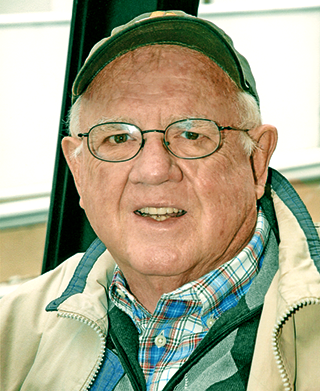.png)
John Baker believes many no-tillers are too complacent about what they think they’re achieving. The proponent of minimal soil disturbance when seeding maintains some no-tillers think they’re doing a good job of sequestering carbon.
But as we have reported previously, several researchers in the U.S. and Australia are questioning whether measurable carbon sequestration is really happening with today’s no-till systems.
Baker, the developer of New Zealand’s Cross Slot limiteddisturbance opener says there is still a lack of true no-tillage on many farms around the world. Although no-tillers are not losing soil carbon at the same rate as when plowing, they’re still oxidizing too much soil carbon with the use of aggressive soil-disturbing openers.
Residue Retention
In the earlier years, Baker says no-tillers focused on residue retention. The residues reduced erosion by holding the soil together, improving infiltration and decreasing raindrop impact and runoff, which favored the use of single- and double-disc-style openers.
Then with yield concerns, tine-style openers became popular in many areas. They were easier to use, reduced hairpinning and could be modified to double-shoot fertilizer. Germination and yields improved, even though these types of openers do not clear surface residue well and cause more soil disturbance than disc openers.
Soil Biology Important
At about the same time, Baker says growers started to understand the main benefit of no-till was the rebirth of soil biology. This led to the growing importance of no-tillers being able to sequester additional carbon from the decomposing surface residues.
Baker believes long stubble, strip-tillage, wider rows and pushedaside straw do little to help the carbon sequestration process. In fact, he’s convinced these practices may reduce much of the carbon sequestration that should be taking place.
While folks believe the main objective of no-tillage was to stop plowing, Baker maintains that’s not nearly enough. This also needs to be accompanied by less soil disturbance while leaving more residue on the soil surface, which can be accomplished with openers that do even less disturbance.
Baker believes the main reason why some surveys of long-term no-tilled soils do not show significant gains in soil organic matter is that many of today’s no-till openers are still disturbing far too much soil and residue. As a result, he believes that carbon is likely being lost today at about the same rate as is being gained by relying on no-till to boost yields, income and profits.
In Baker’s mind, getting to where we do even less soil disturbance will help us sequester more carbon, boost yields and result in a “win-win” situation for everyone.






